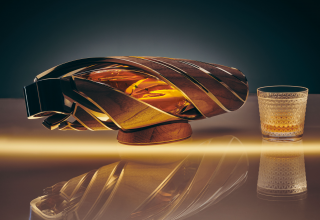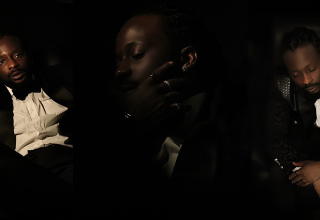
The Accra International Conference Centre was once home to the Ghana Movie Industry. Think of pure Hollywood glam and trophy handouts, the announced maiden edition of the Ghana Movie Awards (2010) was the end-of-year event top executives anticipated to consume public interest. For the first time in decades, the industry was speaking in a language of rewarding excellence.
To industry persons, it was a time to celebrate the real geniuses behind some of the classic works produced on screen. To the beautiful actors that brought scripts to life, it was a gift coming in to fill the potholes in their acting resumes, while compelling them to liberate themselves from damaging roles that brought lesser recognition to their craft.
“It’s a good start… we haven’t had this in a long while so this is actually supposed to encourage movie makers to do more and more quality movies and then we artistes will also improve in our works,” disclosed Roselyn Ngissah, one of the best actress in lead role recipients of the night.
The entire nation was in readiness to explore the newest member of the award season fold. Prior to its coming, the Ghana Music Awards was the only big-ticket event bringing together major controllers of the industry in one night. The music fraternity had at least done it for their big names since 1999 and was still in the act of doing so.
For a chance to be nominated, film houses as well as independent filmmakers were under strict directives to submit a hard copy of their projects to the Film Producers Association of Ghana (FIPAG) ahead of time. A 100-member committee (comprising actors, directors, producers, writers, technicians and visual effects persons) had been invited to form the screening and nomination committee that decided on which submitted film is worthy of a nomination badge.
Like most award ceremonies, preceding events such as its launch and nominees’ announcement were put in place in creating a well-structured franchise. Every major player in Gollywood was in attendance, leading to ‘The Party of the Season’ as it was affectionately called.
From top to the least paid-attention category, the 2010 GMAs showed a glimpse of authenticity. One would have thought, for a first-time event of its magnitude, popular players such as; Nadia Buari, Yvonne Nelson, Jackie Appiah, Majid Michel, John Dumelo, Van Vicker, amongst a few others will dominate the chart in the major acting category (lead actor/actress), but to the shock of spectators and critics, it also favoured the brilliant performances of other contenders, who were little known to the public at the time.
In the best lead actress (English) category, Jackie together with her ‘Four Play’ ladies Juliet Ibrahim, Yvonne Okoro and Roselyn Ngissah were up against Martha Ankomah (Kiss Me If You Can), Lydia Forson (A Sting in a Tale), Ama K. Abebrese (Sinking Sands), Lucky Lawson (Desperate to Survive) and Akorfa Edjeani Asiedu (I Sing of a Well). Buari and Nelson were thrown into the supporting actress (English) category alongside seven others including screen legend Doris Sackitey, for her turn in ‘Sinking Sands’.
Similar to the lead actress space, the best actor in a lead role (English) was heavily contested by Majid Michel (The Beast), J.O.T Agyemang (I Sing a Well), Van Vicker (DNA Test), Ruffy Samuel (Love & Lust), Eddie Nartey (Kiss Me If You Can), Prince David Osei (Kiss Me If You Can) and Senanu Gbedawu (Check Mate). Dumelo was seen in the best supporting actor (English) category.
The local acting categories, which rewarded performers in the Kumasi-based sector were flooded by giant players Alex Kofi Adu, Rose Mensah, Nana Ama McBrown, Vivian Jill Lawrence, Emelia Brobbey and Mercy Asiedu.
On the best director (English) bench, Shirley Frimpong-Manso was in the mention for her film ‘A Sting in a Tale’ alongside Leila Djansi (Sinking Sands), Patrick Yadaah (DNA Test), Kobi Rana (Kiss Me If You Can) and Socrate Safo (Adults Only).
For best picture, ‘Sinking Sands’, ‘Ama Ghana’, ‘A Sting in a Tale’, ‘Check Mate’, ‘Chelsea’, ‘I Sing of a Well’, and ‘Ama Ghana’ made the cut as shortlisted films facing off as contenders.
Despite Buari’s absence in the lead actress (English) category, she was the ultimate star of the year, as two of her starred in films featured in the best picture category.
In as much as the announcement of the Ghana Movie Awards sunk well with industry executives and the general public, a flawed side of it was the distinction placed on English oriented films and Akan movies in some categories. According to most critics, language doesn’t weigh much to cause a separation in the acting categories. A performance recognized in Kumawood could equally compete with an English-based performance played by a Jackie or Lydia.
Aside the buzz the event received with its nomination list, local channels and international media excitingly prepped up for the big night, which took place on Christmas day December 25, 2010. It was the break of a new day in Gollywood.











